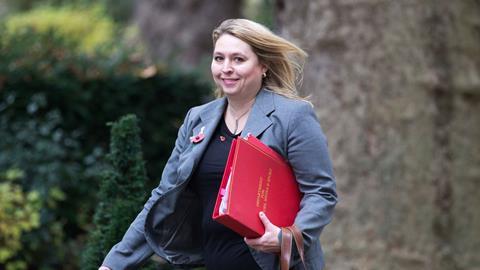The government today insisted that it has not yet made up its mind whether to implement the ‘stick’ of its plans for press regulation, a measure that would make publishers liable for the costs of both sides in defamation cases – even when claims are successfully defended.
Announcing the opening of a consultation today, Karen Bradley (pictured), culture secretary, told parliament: ‘We think the time is right to consider section 40 further.’ Section 40 of the Crime and Courts Act 2013 was introduced to ‘incentivise’ newspapers to join a recognised regulator.
It has passed in to law but remains uncommenced.
Under section 40, a member of ‘a recognised self-regulator’ that loses a relevant media case in court will not have to pay the winning side’s costs. However, if a publisher that is not a member of a regulator wins such a case, they would have to pay the losing side’s costs as well as their own.
The government has come under pressure to implement the measure following the first recognition by Royal Charger of a ‘self-regulator’, IMPRESS. On 11 October the Lords approved an amendment to the Investigatory Powers Bill that would implement Section 40; it was defeated by 298 votes to 261 in the House of Commons this afternoon.
The consultation appears to be an attempt to head off the controversy. It asks for views on four options:
- to keep section 40 ‘actively under review’;
- to commence section 40 fully;
- to repeal section 40 on the ground that ‘the incentive is no longer required’; and
- to commence section 40 partially, where it protects members of a recognised self-regulator, in effect those signed up to IMPRESS. ‘The elements of section 40 that apply to those outside a recognised regulator could either remain on the statute book and be kept under review or repealed,’ the document states.
It also notes that under the EU General Data Protection Regulation, which will become law in 2018, the government ‘will look at existing sanctions available in relation to the misuse of personal data... to help make sure investigative journalism is carried out responsibly while ensuring genuine investigative journalism is not curtailed.
‘In particular, we will review current penalties for data protection breaches and aim for sanctions that act as effective deterrents against the misuse of personal data in all contexts.’
The government is also seeking views on part 2 of the Leveson inquiry, which was designed to look at wrongdoing in the press and the police, four years after part 1 was published.
The 10-week consultation closes on 10 January.




























3 Readers' comments